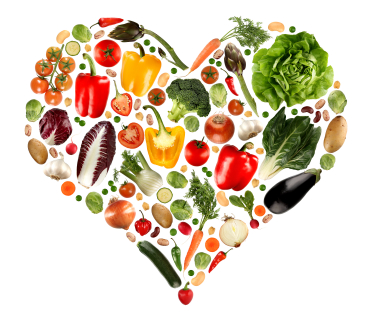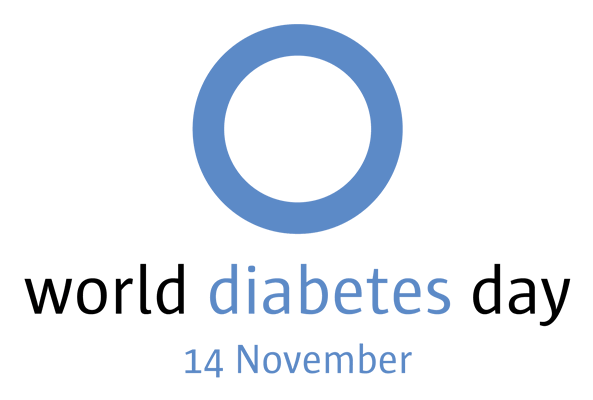Recently I was reminded of a startling truth: 1 in 7 Americans has kidney disease. Even more alarming, many do not even know it. They have no idea that in a few years they will be faced with a stark reality. Renal dialysis. For most, they will either have to spend four hours a day, three days a week in a clinic for hemodialysis treatments, or endure some other form of dialysis.
Here is the part that makes me crazy. The majority of these cases are avoidable. In the United States “the two leading causes of kidney failure, also called end stage kidney disease or ESRD, are diabetes (also called Type 2, or adult onset diabetes) and high blood pressure,” according to the National Kidney Foundation. Diabetes and high blood pressure are primarily caused by obesity and a sedentary lifestyle. Most of us have control over what we eat and how we move around.
Fortunately, eating a balanced diet will go a long way to improving kidney health. Here are the top 15 food choices that are extra kind to kidneys, condensed from an article by DaVita renal dietitian, Sara Colman, RD, CSR, CDE.
1. Red Bell Peppers
Red bell peppers are low in potassium and high in flavor, but that’s not the only reason they’re perfect for the renal diet. These tasty vegetables are also an excellent source of vitamin C and vitamin A, as well as vitamin B6, folic acid and fiber. Red bell peppers are good for you because they contain lycopene, an antioxidant that protects against certain cancers.
2. Cabbage
A cruciferous vegetable, cabbage is packed full of phytochemicals, chemical compounds in fruit or vegetables that break up free radicals before they can do damage. Many phytochemicals are also known to protect against and fight cancer, as well as foster cardiovascular health. Sulforaphane, a phytochemical in cruciferous vegetables, may prevent or stop cancer cell growth in lung, colon, breast, bladder, prostate and ovarian cancers. High in vitamin K, vitamin C and fiber, cabbage is also a good source of vitamin B6 and folic acid. Low in potassium and low in cost, it’s an affordable addition to the kidney diet.
3. Cauliflower
Another cruciferous vegetable, cauliflower is high in vitamin C and a good source of folate and fiber. It’s also packed full of indoles, glucosinolates and thiocyanates — compounds that help the liver neutralize toxic substances that could damage cell membranes and DNA.
4. Garlic
Garlic helps prevent plaque from forming on your teeth, lowers cholesterol and reduces inflammation.
5. Onions
Onion, a member of the Allium family and a basic flavoring in many cooked dishes, contains sulfur compounds which give it its pungent smell. But in addition to making you cry, onions are also rich in flavonoids, especially quercetin, a powerful antioxidant that works to reduce heart disease and protects against many cancers. Onions are low in potassium and a good source of chromium, a mineral that helps with carbohydrate, fat and protein metabolism.
6. Apples
Apples have been known to reduce cholesterol, prevent constipation, protect against heart disease and reduce the risk of cancer. High in fiber and anti-inflammatory compounds, an apple a day may really keep the doctor away.
7. Cranberries
These tangy, tasty berries are known to protect against bladder infections by preventing bacteria from sticking to the bladder wall. In a similar way, cranberries also protect the stomach from ulcer-causing bacteria and protect the lining of the gastrointestinal (GI) tract, promoting GI health. Cranberries have also been shown to protect against cancer and heart disease.
8. Blueberries
Blueberries are high in antioxidant phytonutrients called anthocyanidins, which give them their blue color, and they are bursting with natural compounds that reduce inflammation. Blueberries are a good source of vitamin C; manganese, a compound that keeps your bones healthy; and fiber, and may also help protect the brain from some of the effects of aging. Antioxidants in blueberries and other berries have been shown to help slow bone breakdown in rats made to be low in estrogen.
9. Raspberries
Raspberries contain a phytonutrient called ellagic acid which helps neutralize free radicals in the body to prevent cell damage. They also contain flavonoids called anthocyanins, antioxidants which give them their red color. An excellent source of manganese, vitamin C, fiber and folate, a B vitamin, raspberries may have properties that inhibit cancer cell growth and tumor formation.
10. Strawberries
Strawberries are rich in two types of phenols: anthocyanins and ellagitannins. Anthocyananins are what give strawberries their red color and are powerful antioxidants that help protect body cell structures and prevent oxidative damage. Strawberries are an excellent source of vitamin C and manganese and a very good source of fiber. They are known to provide heart protection, as well as anti-cancer and anti-inflammatory components.
11. Cherries
Cherries have been shown to reduce inflammation when eaten daily. They are also packed with antioxidants and phytochemicals that protect the heart.
12. Red grapes
Red grapes contain several flavonoids that give them their reddish color. Flavonoids help protect against heart disease by preventing oxidation and reducing the formation of blood clots. Resveratrol, a flavonoid found in grapes, may also stimulate production of nitric oxide which helps relax muscle cells in the blood vessels to increase blood flow. These flavonoids also provide protection against cancer and prevent inflammation. Phytochemicals in grapes, wine and grape juice have been extensively studied since the discovery that the French have much lower rates of heart disease despite a diet high in saturated fat.
13. Egg whites
Egg whites are pure protein and provide the highest quality of protein with all the essential amino acids. For the kidney diet, egg whites provide protein with less phosphorus than other protein sources such as egg yolk or meats.
14. Fish
Fish provides high-quality protein and contains anti-inflammatory fats called omega-3s. The healthy fats in fish help fight diseases such as heart disease and cancer. Omega-3s also help lower low-density lipoprotein or LDL cholesterol, which is bad cholesterol, and raise high-density lipoprotein or HDL cholesterol, which is good cholesterol.
15. Olive oil
Olive oil is a great source of oleic acid, an anti-inflammatory fatty acid. The monounsaturated fat in olive oil protects against oxidation. Olive oil is rich in ployphenols and antioxidant compounds that prevent inflammation and oxidation. Studies show that populations that use large amounts of olive oil instead of other oils have lower rates of heart disease and cancer.
The entire article can be read here.
The foods on this list are delicious, and easily incorporated into a healthy diet. So give your kidneys some love, and add some of the items above to your next shopping list.





Leave A Comment